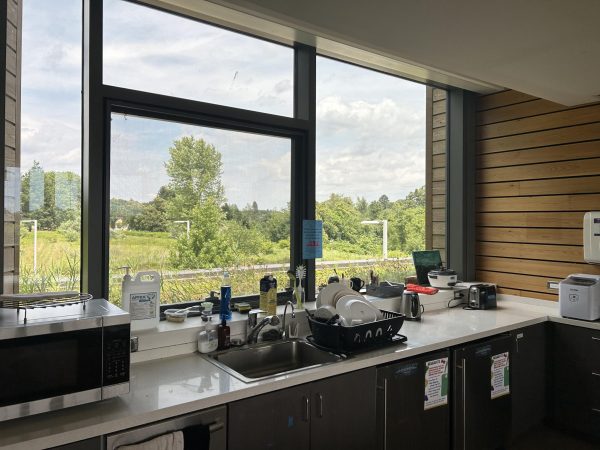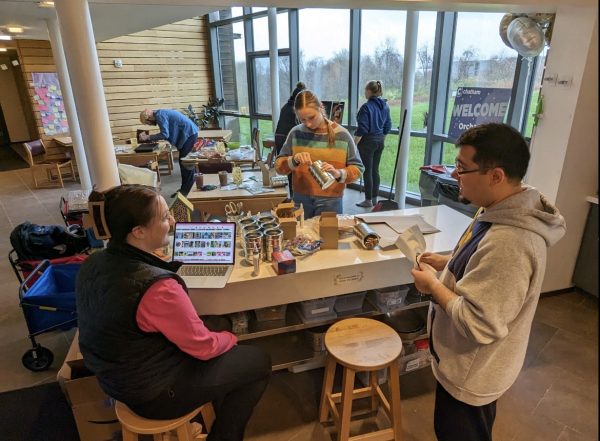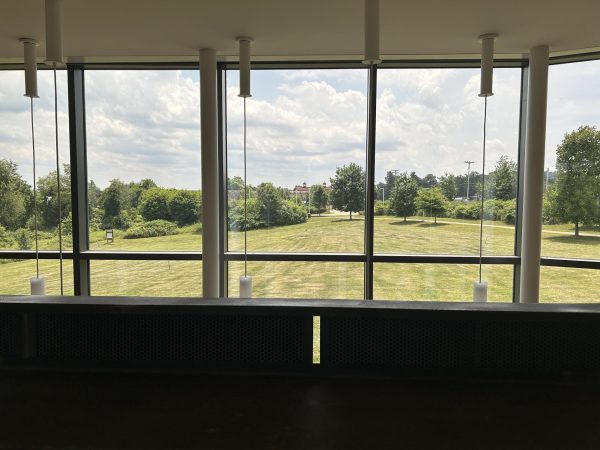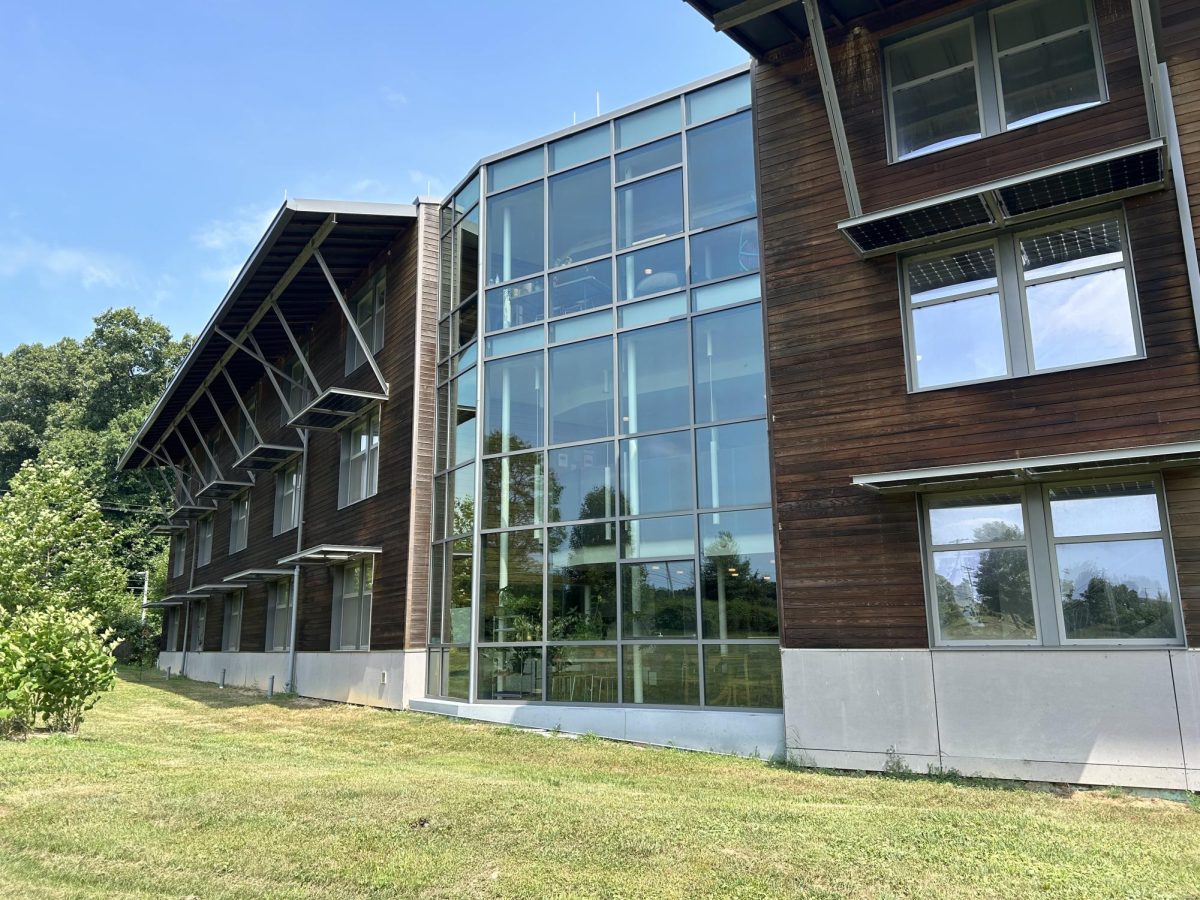Chatham University announced on July 1 that Orchard Hall, the only residential building at Eden Hall, will close for the 2024-25 academic year. Eden Hall is around a 45-minute drive from the Shadyside campus, and this sudden closure was made due to the ongoing University-wide reorganization effort.
The reorganization aims to lower the $12 million deficit the school faced last year. That total has since been reported to be cut in half, but the closure of Orchard Hall is part of the continuous changes at Chatham to close the deficit.
“This is just one aspect of the University’s plan to identify operational changes, cost savings and long-term financial sustainability in our processes,” Vice President of Marketing and Communication Bill Campbell said in an email. “It will not change anything in the more extensive process.”
During a faculty meeting after the closure was announced, it was shared that the University was losing an estimated $400,000 a year on Orchard Hall.

Orchard Hall can accommodate 60 students, but the University reports eight currently reside there for the summer semester.
“There is no universal move-out date for the eight students residing in Orchard this summer,” Campbell said in an email. “It has been the case for many years at Chatham that students who have housing booked for both the summer and fall work with Residence Life on a plan to transition from the summer assignment to their fall assignment, depending on when their fall assignment is ready (and when it makes logistical sense).”
At the time of the closure email, 30 students had paid deposits to live at Orchard Hall in the fall. A source working for Residence Life confirmed to the Communiqué that 38 students were reported to be moving in for the upcoming term before the closure.
At its lowest, Orchard Hall’s occupancy was 15 students but has since grown as the Falk School of Sustainability has grown.
- In fall 2014, there were eight students in Environmental Science.
- In fall 2019, there were 23 students in Environmental Science.
- In fall 2023, there were 64 students in Environmental Science.
Since Orchard Hall’s opening in 2015, Chatham has frequently changed its policy for mandating sustainability students to reside at Orchard Hall.
“While the students in residence enjoyed the immersive experience, the University had to subsidize the services heavily,” Campbell said. “From a financial and operational standpoint, it was not sustainable to maintain a separate residential experience for only 25-30 students paying discounted housing prices and subsidies in other areas. The final savings will be determined based on operational changes that can be implemented.”
The most recent policy for students staying at Orchard Hall has been:
- Any first-year student: Not allowed to live at Orchard Hall.
- Sustainability and environmental science majors: Had to live at Orchard Hall for their second year.
- Food study majors: Had to live at Orchard Hall for their third year.
Students could request a waiver to avoid living at Orchard Hall if they played a sport or received a medical exemption.
The impact on students
Eden Hall is around a 45-minute drive away from the Shadyside campus and having on-campus housing was the deciding factor for some students to choose Chatham.
“I decided to move from Philadelphia specifically because of Eden Hall campus,” graduate student Holly Tyson said. “Something I think we all take a lot of pride in here at Eden Hall is the fact that we have a really tight-knit community, and Orchard Hall is one of the central pieces of that community. And honestly, I think there’s a handful of people that without the support of Orchard Hall, they wouldn’t have continued with their studies.”

After hearing of the closure of Orchard Hall, Rachel Coyne ‘27 created a petition on change.org to garner support toward saving the residential building. As of July 16, the petition has gained more than 1,000 signatures.
“Upcoming residents already made the $150 housing deposit to move in on August 25,” Coyne said in the petition. “Almost 40 students are displaced by the board’s decision and last-minute notice, a portion of whose jobs are now insecure. Students scheduled classes around living here and found jobs for their time there. The University even hired and signed contracts with Residential Assistants for Orchard Hall and does not have a concrete plan in place to honor those contracts.”
Students who made a deposit can use that money toward other on-campus housing options or pay other fall charges. Students can also reach out to Student Affairs and may be eligible for a refund.
Students who are taking summer classes can stay at Orchard Hall until classes end on Aug. 16.
Orchard Hall was just one of two Americans with Disabilities Act-compliant on-campus housing options offered by Chatham, the other being Woodland Hall on the Shadyside campus. Orchard Hall was the only on-campus graduate student housing until the school announced the opening of the Healthcare Living and Learning Community (LLC) at UPMC Shadyside in June.
This residence can house 40 students, and some Orchard Hall students were able to find a spot there for the upcoming fall semester.
Graduate student Molly Draper is the forester at Eden Hall. This position has Draper map out plant species, collect and organize data and engage with community members who use the Eden Hall trails. While she has found housing at the new Healthcare LLC, she notes the difficulties this move will make for her and other students.
“It’s adding a lot more burden than you’d initially think,” she said. “Yeah, it’s a 45-minute commute both ways to get to your job, but on top of that, a lot of the jobs on the Eden Hall campus really require you to be integrated into the community and in tune with the land.”
When Chatham was given the land in 2008 by the estate of Sebastian Mueller, it was done with the intention of students stewarding the land. Without students living at Eden Hall, there are fears that this work will now go undone.
“Farming, forestry and environmental research, you need to be here and live here to really get the most out of these opportunities,” Draper said. “Same goes for classes. These Falk School programs were designed around the campus we are on. By evicting students, you’re not allowing them the opportunity to fully appreciate and be inspired by the natural gifts this space offers.”

Changes were also made to the dining services at Eden Hall. The dining hall used to be open every day for breakfast, lunch and dinner. Now, lunch will only be served Mondays through Fridays. This has some students concerned with how many students will be able to steward the land.
“Working on the farm this summer, I see firsthand how many folks they pull onto the farm team who live in Orchard Hall,” Tyson said. “We are here in the evenings, we’re here in the early mornings. We’re also here on the weekends, so all of the watering that needs to be done over the weekend. Back when we had livestock, pretty much all those positions were occupied by people who lived in Orchard Hall because it’s really hard to be a farmer unless you’re physically on the property that you’re managing.”
What’s next?
There is no set-in-stone plan for the future of Orchard Hall, but according to the email stating its closure, Chatham is exploring different overnight accommodations options for events, meetings, conferences and summer camps.
For continued coverage of the future of Orchard Hall, follow @Communique_CU on Instagram.



